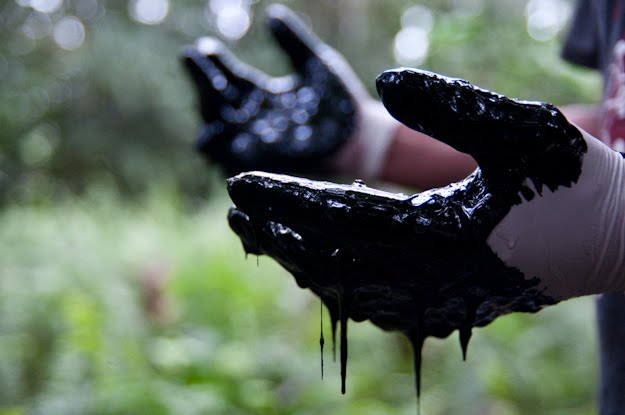Chevron Charged $18 Billion in Reparations to Ecuador

Ecuadorians celebrated on Monday as a Second U.S. Court of Appeals reaffirmed the decision of Judge Nicolas Zambrano of Ecuador to fine Chevron USD 18 billion for the company’s role in Amazon oil pollution. The decision makes Chevron accountable for more than USD 9 billion in damages and USD 8 billion in punitive damages. However, Pablo Fajardo, the plaintiffs’ lead attorney, stated that they will not collect financial reparations until the first quarter of 2012, after the appeals process in Ecuador is completed.
Chevron, formerly known as Texaco, was accused of disposing more than 18 billion gallons of toxic matter into waste pits and rivers between 1972-1992. In 1993, 30,000 outraged Ecuadorian citizens pushed for a lawsuit against the multinational corporation. Richard Cabrera, a court-appointed geologist, confirmed the damaging effects of the environmental pollution and the hundreds of cancer deaths it had caused since Chevron began operating in the region.
Following the initial February ruling of Judge Zambrano, who fined Chevron USD 8.6 billion with a ten percent reparations fee for pollution damages, Chevron condemned the verdict as “fraudulent” and “illegitimate.” On February 15, 2011, the company fired back at the Ecuadorian courts and appealed to U.S. District Judge Lewis Kaplan in New York who obstructed the fine. Chevron argued that lawyers and supporters of the aboriginal groups colluded and shared information to produce a fabricated report on pollution in the Amazon.
Monday’s ruling serves as a victory for the Ecuadorian people, making it the first time the decision of an Ecuadorian court has successfully penalized a multinational corporation for pollution on behalf of the indigenous people, albeit with the intervention from the U.S. Court of Appeals. Fajardo expressed words of optimism, proclaiming that justice will be served after prolonged years of damage. Environmentalists hope that the historic battle against Chevron serves as a precedent against businesses and firms who exploit the natural environment of developing countries. The Ecuadorian example proves that indigenous rights can be upheld in modern legal systems.

